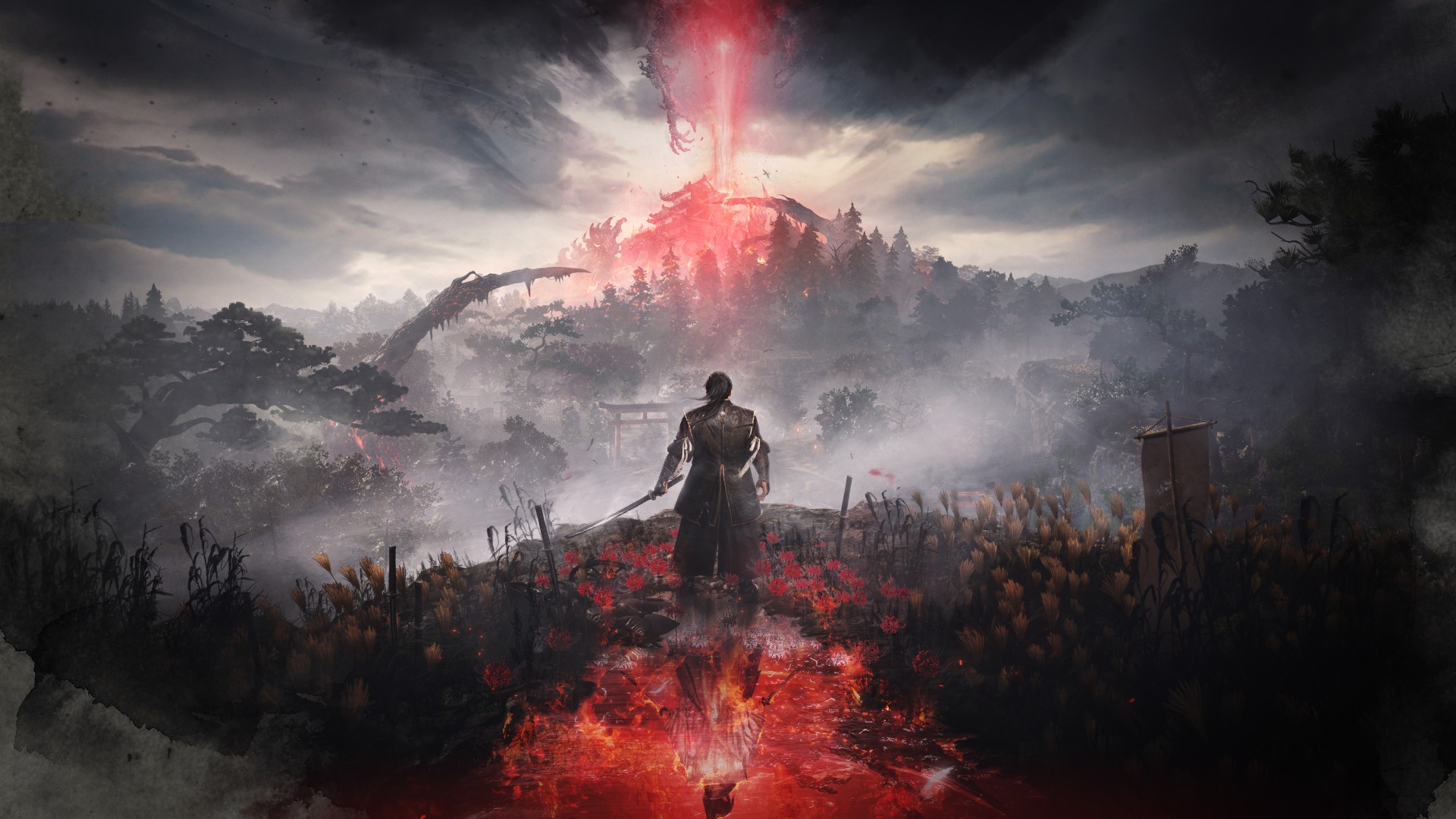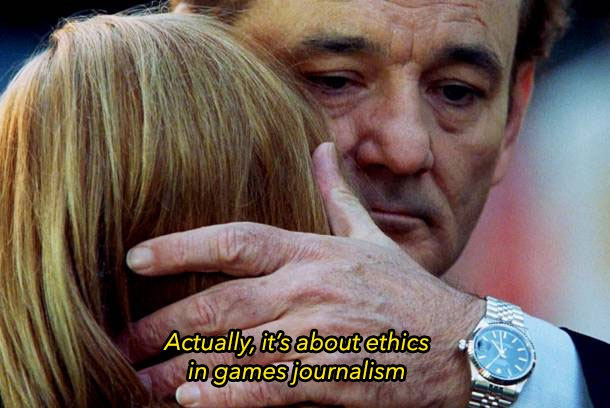
Chris Thursten: If only we could talk to the ‘Gaters
“Remember 2014?” Someone will someday say. “Remember when Jayne from Firefly teamed up with some anons, a couple of YouTubers and the odd opportunistic blogger to disrupt any form of reasonable discussion about the games industry for the better part of a year?”
That it has taken a North Korean cyberterrorist attack on a Seth Rogen comedy for Gamergate to become the second weirdest insertion of American celebrity into public affairs in 2014 is a testament to what a weird year it has been. Weird, unsettling, and depressing.
If you’re reading this and you identify with Gamergate then, well, hi. I hope you keep reading, because you’re the person I most want to talk to about all of this. I hope that none of the ire I might direct at the movement applies to you personally—that you haven't harassed anybody, and that you've not condoned harassment save by your association with that hashtag. I imagine that you have concerns and questions about your hobby, and about the institutions that cover your hobby, and a bunch of other doubts tied up in political and social issues that can feel intimidating, even oppressive, when you’re first introduced to them.
I’m a straight white guy and I play a lot of videogames, so I get that. I'd prefer not to get it, actually: I wish the kickback against feminist criticism of games came from a point of view that was totally alien to me. I wish I didn’t resonate, even slightly, with the silly romantic ideal of the young man’s crusade. I'd like to put everybody who has sent death threats to women in one box and put myself in another, totally unrelated box, and look at everybody in my box and know that I’m in the right box for righteous people. But I can’t. Because I really like Les Miserables and have coveted the role of the guy on the barricade with the big red flag. Because I cared about Firefly. Because I’m a straight white guy that plays a lot of videogames, and as such the experience and prejudices and privileges that come with that identity are going to be part of my life whether I like it or not.
It’s likely that I have more in common with you, the Gamergater, than I do with the people whose work Gamergate was created to oppose. That’s worth exploring. What is it about my experience that meant I wasn’t offended by the notion that the word ‘gamer’ was depreciating in value? What is it about my experience that means I respond well to the presence of politics in games, where you respond negatively? What is it about my experience, in short, that means I respond well to change? There is, I think, a valuable discussion to have that is grounded in the way we are similar—in how we have arrived at different perspectives via the same road. You’re reading PC Gamer. I grew up reading PC Gamer. That is not a broad Venn diagram; it doesn’t provide a lot of room for conflict, or at least it shouldn't.
Yet you, the Gamergater, and me, the journalist, can’t have that conversation anymore. We’re on two sides of a 'war' invented by people whose understanding of historical narrative comes from videogames, movies and anime. A conflict that impacts real lives, and real livelihoods, with frequency and severity far outweighing the scant justification offered in Wikis that have more in common with Wookieepedia than Wikipedia. Because I believe that Anita Sarkeesian has challenging but necessary things to say about the industry, we can’t talk. Because I believe it is important to defend the rights of the victim before the aggressor, we can’t talk. Because I believe that the biggest problem in games journalism at the moment is a lack of diversity—PC Gamer included—we can’t talk. I’m an SJW, you’re a ‘Gater, let’s have a big pointless fight.
It is traditional, at this point, to attempt to validate these labels with rickety conspiracy theories and rhetorical posturing. There is no need. I don't agree with some of the things you believe. It's no more complicated than that. The moment somebody attempts to build a convoluted factional conflict on top of that basic difference of mind, they are putting distance between you and the things you care about. Grand causes are attractive but in this context all they amount to is a feeling, a force that drives you further and further away from whatever kernel of personal truth brought you into this thing in the first place. And I want to believe that truth exists. It is impossible to have an argument in good faith when you deny the other person the right to the feeling that spurs their participation. That is what 'SJW' does. That is what 'Gamergater' does.
We need new labels. If you’re the type to hound others until they’re unable to participate in online discussions, you’re not a 'Gamergater'—you’re a shitheel. If your targets are exclusively women in the industry, you're a sexist shitheel. If you’re the type to threaten violence, hack someone's email, or post their personal information—you’re a criminal shitheel. Those pro-GG shockjock bloggers, who until a month before Gamergate were writing off people who play games as fat, lazy, pointless and isolated? Manipulative shitheels. Those amateur documentarians, winning over teenagers by dressing like playboy hypnotists? Tragic shitheels. None of these people should represent you or the cause of better games journalism. And yet, through the Gamergate label, they have come to do so. At this point you can no more detach 'Gamergate' from these associations than you can save yourself from an oncoming truck by repeatedly and loudly declaring it to be a pillow.
Let’s take the whole thing apart and start over. If you have questions about games journalism’s relationship with the industry, e-mail me. If you have questions about feminism or its role in game criticism, I’ll point you towards the resources that have helped me. Ditch the shitheels, the harassers, the unaccountable anons and anybody who thinks they can impress you by owning a hat and a plastic skull. Ditch Gamergate, in short, and let’s talk about videogames.
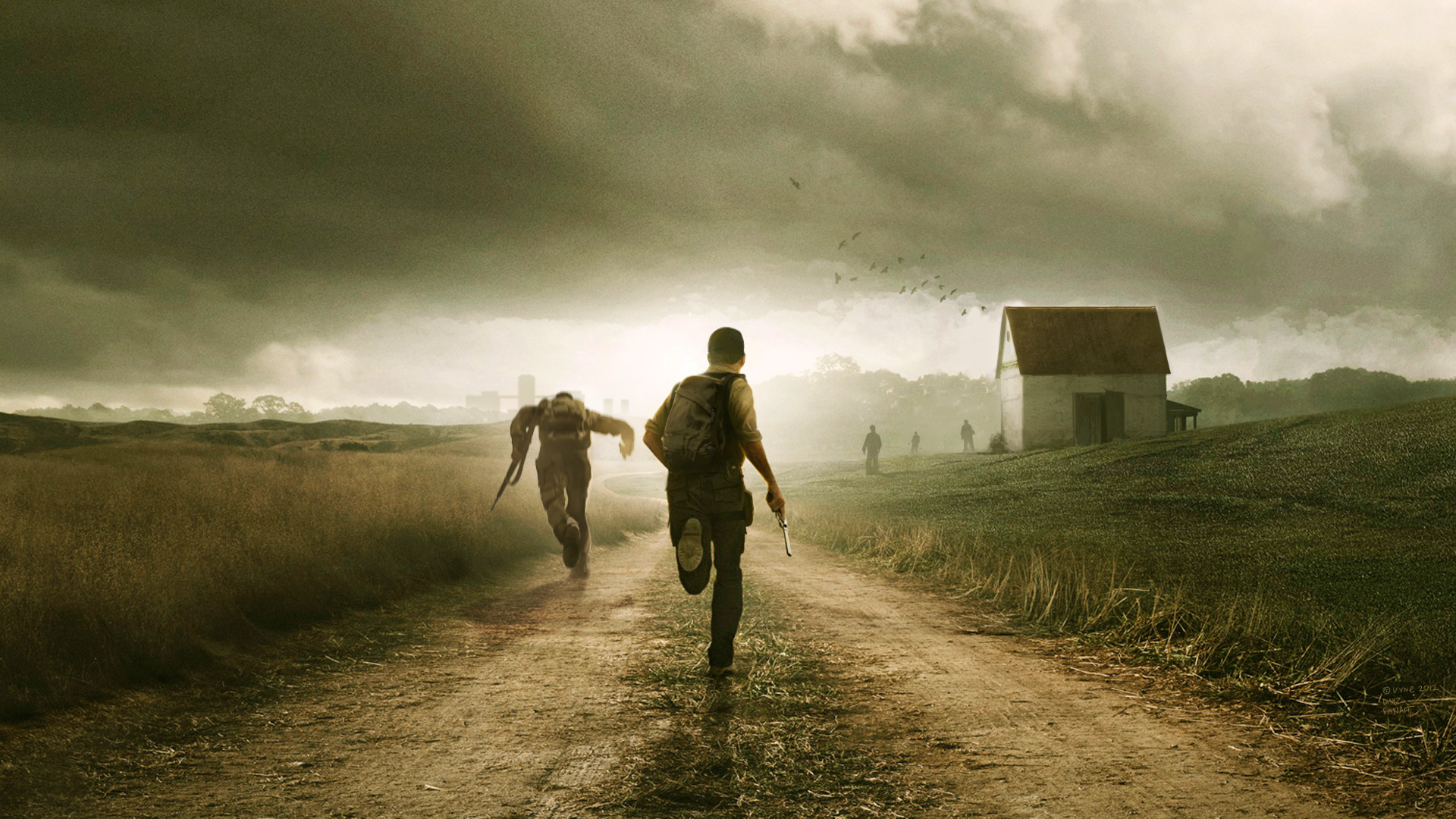
Chris Livingston: The Pitfalls of Crowdfunding
Back in June of 2013, I bought my first early access game, Under the Ocean, a charming side-scrolling island survival game. Shortly thereafter, the developers announced they were scrapping the side-scrolling format for an isometric view. Since that announcement, over a year ago, there hasn't been a single update to the game released. I'm not mad about it (though many backers are), but I personally don't see much point in investing time in a game that is going to, at some point, be completely changed, and the game I thought I was buying is going to be nothing like the game I (hopefully, eventually) get.
While Kickstarter and Steam's early access program are giving rise to a number of games we might never have otherwise seen, there remains great peril in the pay now, get-it-later format, because we may never get it later, and even when we do, we may not get what we think we paid for. Double Fine experienced twin crowdfunding speedbumps this year, as backers received only the first act of Broken Age, while the second act has been pushed back to 2015. Then, early-access management game Spacebase DF-9 abruptly dropped dozens of planned features in a sudden rush to release it due to money issues.
One of the most notable early access games, DayZ, is still pushing out new updates, but Dean Hall is departing the project, leaving fans wondering if DayZ's future is in good hands. Some games just straight-up failed, like the crowd-funded Yogsventure, which left backers with only a key to another unfinished game, TUG, which promptly had to lay off half its development team due to funding problems, and Towns was abandoned incomplete this year as well.
The ultimate takeaway this year: for consumers and developers alike, crowdfunding is a big financial risk. Developers shouldn't make promises, and consumers shouldn't expect promises to be kept. It's a gamble, plain and simple.
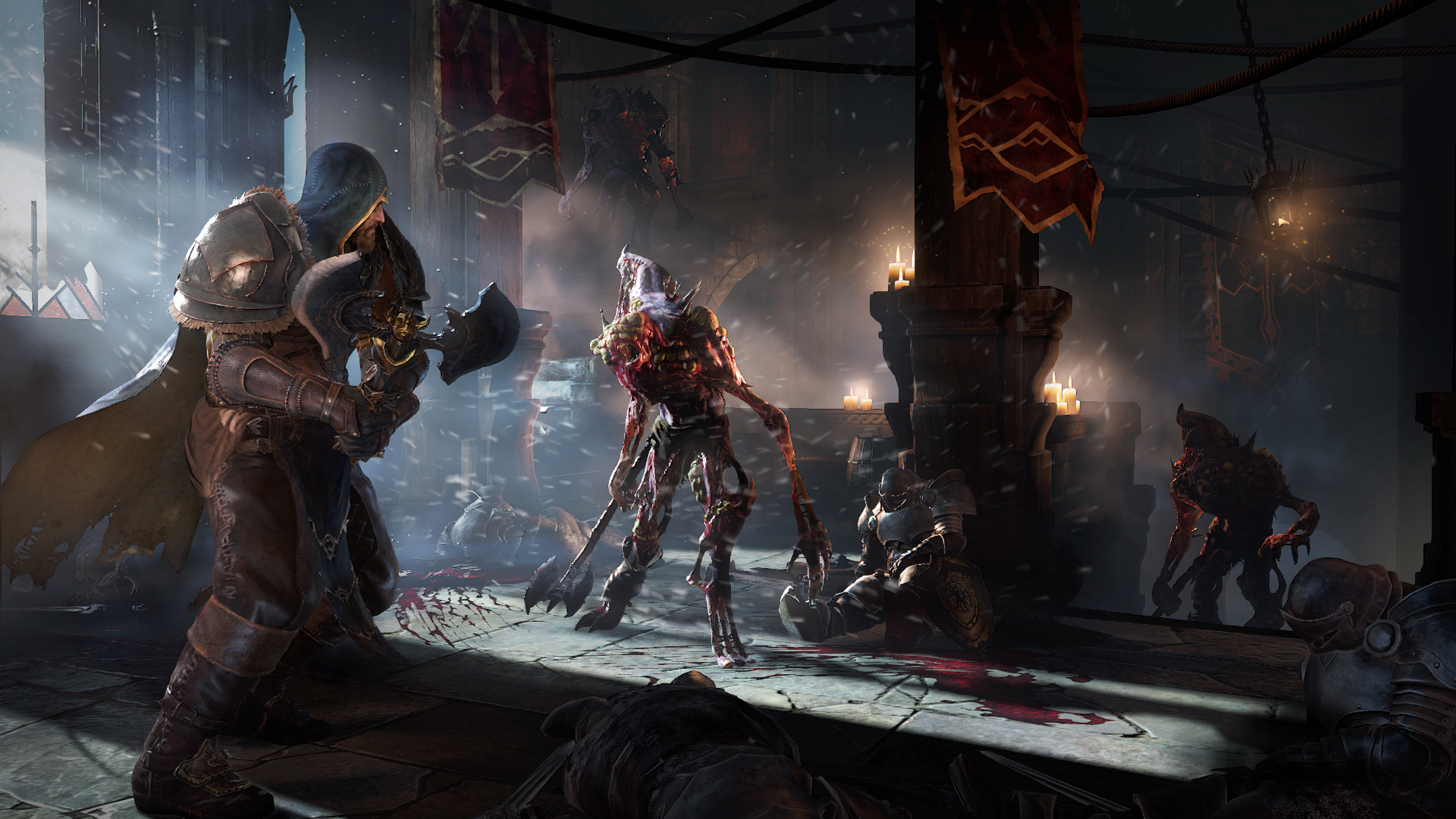
Tyler Wilde: Please make games that work
There have been a lot of great games this year, but the ones with the biggest budgets had a way of crashing the hardest… to desktop. My struggles with Lords of the Fallen were shared by many. Assassin’s Creed Unity was a mess at launch. The Final Fantasy ports have been atrocious. Watch Dogs had serious problems on AMD cards. Dragon Age: Inquisition, which I love, is full of dumb glitches and ridiculous AI behaviors, and even included a bug that could wash away vital companion chatter.
Obviously, not every bug will be caught in time, and not every system will run every game smoothly. I don’t expect that, and I don’t envy those who have to fix it all. But I’m tired of these patch sagas—weeks and weeks of work after release to bring games up to the minimum standard we ask for. It’s disrespectful to consumers, especially considering how aggressively some of these games are marketed. “Buy early to get an exclusive such-and-such! Just know that you won’t actually be playing it for a few weeks after launch.”
I’m glad that games are no longer sold as-is with no updates outside of paid expansions, but releasing them with deep technical flaws and then scrambling to fix them is a terrible habit.
I think it’s partially a symptom of how complex games are getting—Dragon Age: Inquisition, for instance, has a lot of moving parts. I can understand that, but it’s not an excuse.
If producing these games on deadline means they won’t quite work on launch day, then the deadline is wrong. And if the deadline absolutely must be hit or the company sinks, then the plan wasn’t very good from the beginning. I’m no business expert, but I know that selling stuff that doesn’t work is a pretty bad idea, and is going to hurt in the long term.
Assuming they aren’t the same story again, props to EA and CD Projekt for delaying Battlefield Hardline and The Witcher 3 to next year. I can imagine those were tough and costly decisions, but I hope the extra time represents all the fixing and rethinking that we could be suffering right now.
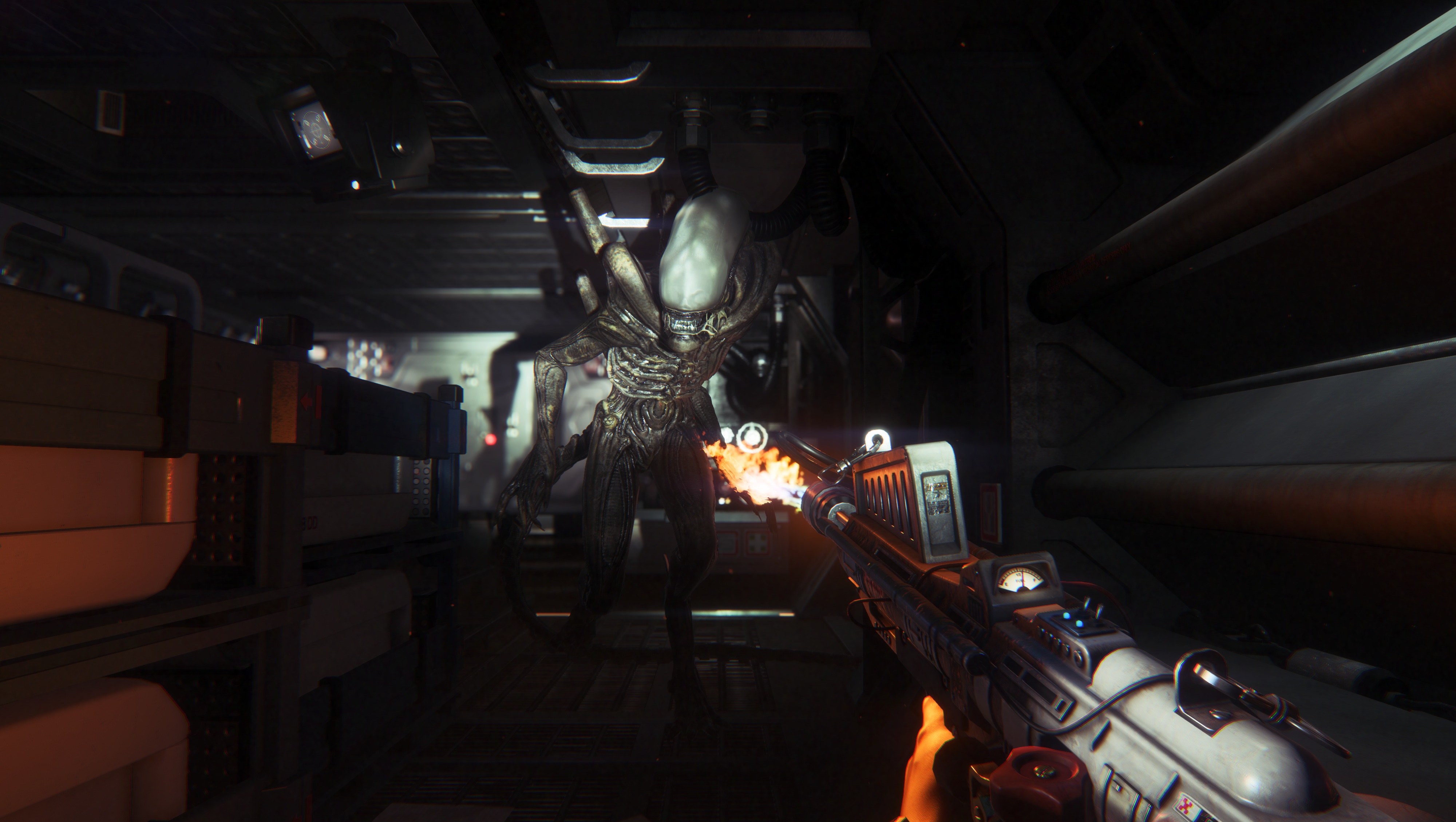
Andy Kelly: Alien: Isolation critics
Look, I’m an open-minded guy. I understand that people don’t like things I do. But I was disheartened when Alien: Isolation, a game I loved, and which was ultimately our game of the year, was met with a varied, sometimes very negative, critical response. Not because I think the people who gave it a low score are wrong, but because I think we should be encouraging brave games like this.
Using an AAA budget, and a famous film licence, to create such a smart, systems-driven game was a bold move by Sega and The Creative Assembly. Everything that defines a blockbuster game, they did the opposite. No weapons, no hand-holding, no over-the-top action. Just you, an alien, and a world of slow-burning, atmospheric terror.
The worry is that if publishers see that subversive games like this are met with negative reviews, they might not take a chance on them in the future. I don’t know how well Isolation sold, and whether the reviews even affected its numbers, but I worry they did.
Alien: Isolation is, undoubtedly, a polarising game, and it won’t be for everyone. Some people felt it was overlong, but I was actually sad when it was over, 25 hours in. But I think all the most interesting art is divisive, and broad critical praise isn’t a requirement for something to be special. Here’s hoping Sega greenlight a sequel.
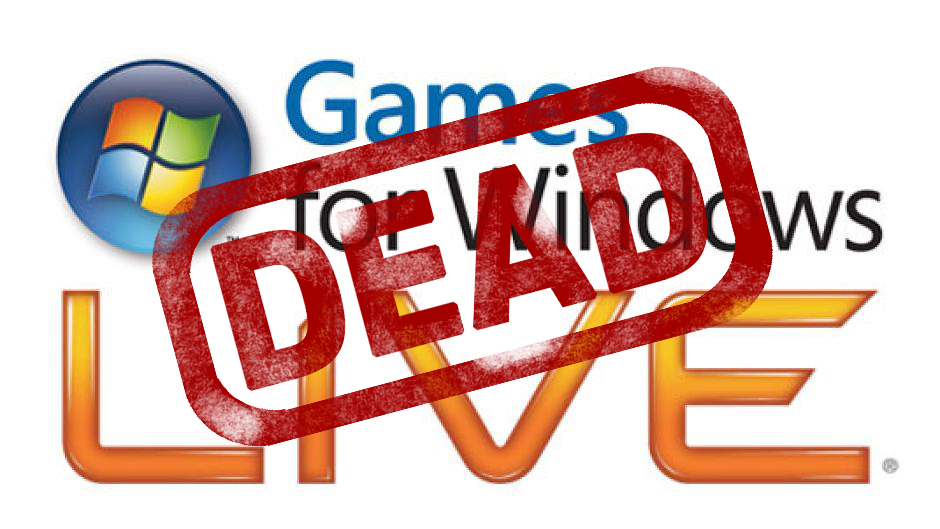
Phil Savage: Collateral damage in the war against Games for Windows Live
I laugh whenever another game ditches Games for Windows Live because a part of me just wants to watch the world burn. An even greater part of me wants to watch the digital service responsible for some of my worst PC gaming consumer experiences of the last decade burn. Games for Windows Live is—I guess at this point, was—terrible. I'm glad it's all but dead.
Another digital service was lost this year, too. Gamespy shut down in May, and its death is more troubling. I wasn't especially enamoured by what it did—it was a functional, utilitarian multiplayer tool. Rather, I'm worried about what it means. Some developers stepped up and patched new multiplayer matchmaking systems into their ageing games. When that didn't happen, multiplayer communities found workarounds and alternative services that could keep their preferred competitive fix alive. It's not, however, a perfect solution. Some games have been flat out abandoned.
Let's take it back to Games for Windows Live. Whatever I think of the service, the games that run it are innocents being caught in the crossover. Many of them have since moved over to Steamworks, but there are plenty that haven't. Currently the service is in a kind of terrible limbo—abandoned and unloved, but still technically functional. Should it actually shut down, it could have a disastrous effect on those few remaining games.
This feels like the opposite of what the digital age should be. The Library of Congress is archiving every tweet. Surely we should also take steps to preserve the things that are actually important.
This stuff troubles me, because it's happened before. Many of the BBC's archives from the '60s and '70s were destroyed. They were physical things that took up space and cost money to keep. Somebody decided that preserving decades of our cultural history—even just old Doctor Who episodes—wasn't worth the cost. Money men are monsters.
We already know that publishers can't be trusted with their own archives. Whether it's multiplayer servers or basic support, too often this stuff is left to dedicated community members. Worse still, games are being increasingly tied to proprietary systems with no guarantee that they'll last. At some point, someone will suggest a cost-saving solution, and there's no guarantee it won't come at the expense of a valuable cultural milestone—a part of the history of what games are and were, and what they might have become.
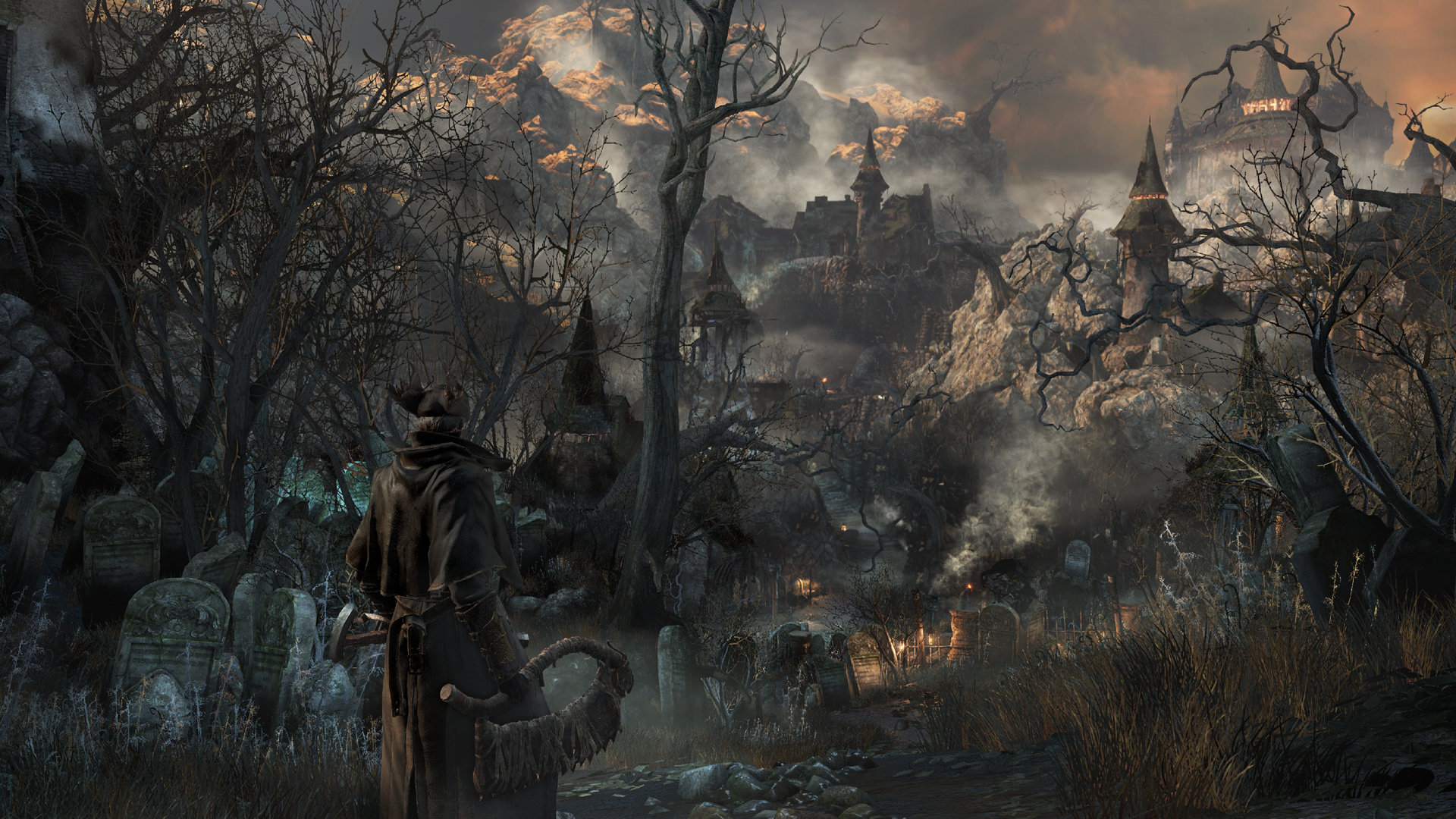
Tom Senior: Lovelorn for Bloodborne
My low for the year was the moment I realised that Bloodborne's Playstation 4 exclusivity is probably genuine exclusivity, not the 'exclusive-for-six minutes and then released with bonus features everywhere else' kind. It's being developed by From Software, who made Dark Souls and Dark Souls 2 (both out on PC), but instead of the relatively PC-friendly Bandai Namco, Bloodborne is the property of Sony, and they'll guard it jealously if they're wise.
It's a shame, because I desperately want to explore another Miyazaki world on PC, and Bloodborne just looks *stunning*. It's a combat-heavy RPG à la Dark Souls, but set in a doomed city of gargoyles and wet cathedrals. The dungeons beneath the city are procedurally generated, which pleases the Spelunky fan in me. Minus GfWL, Myazaki's new multiplayer ideas would just work as well. Ah, too perfect.
But it's not going to happen, I think. I'd make an argument about how exclusivity hurts consumers, but I understand why Sony would want to hold onto a system seller like that. I'll have to find a way to cope with my dissatisfaction, maybe I'll find a rooftop and find a full moon to howl at. It would seem fitting, somehow.
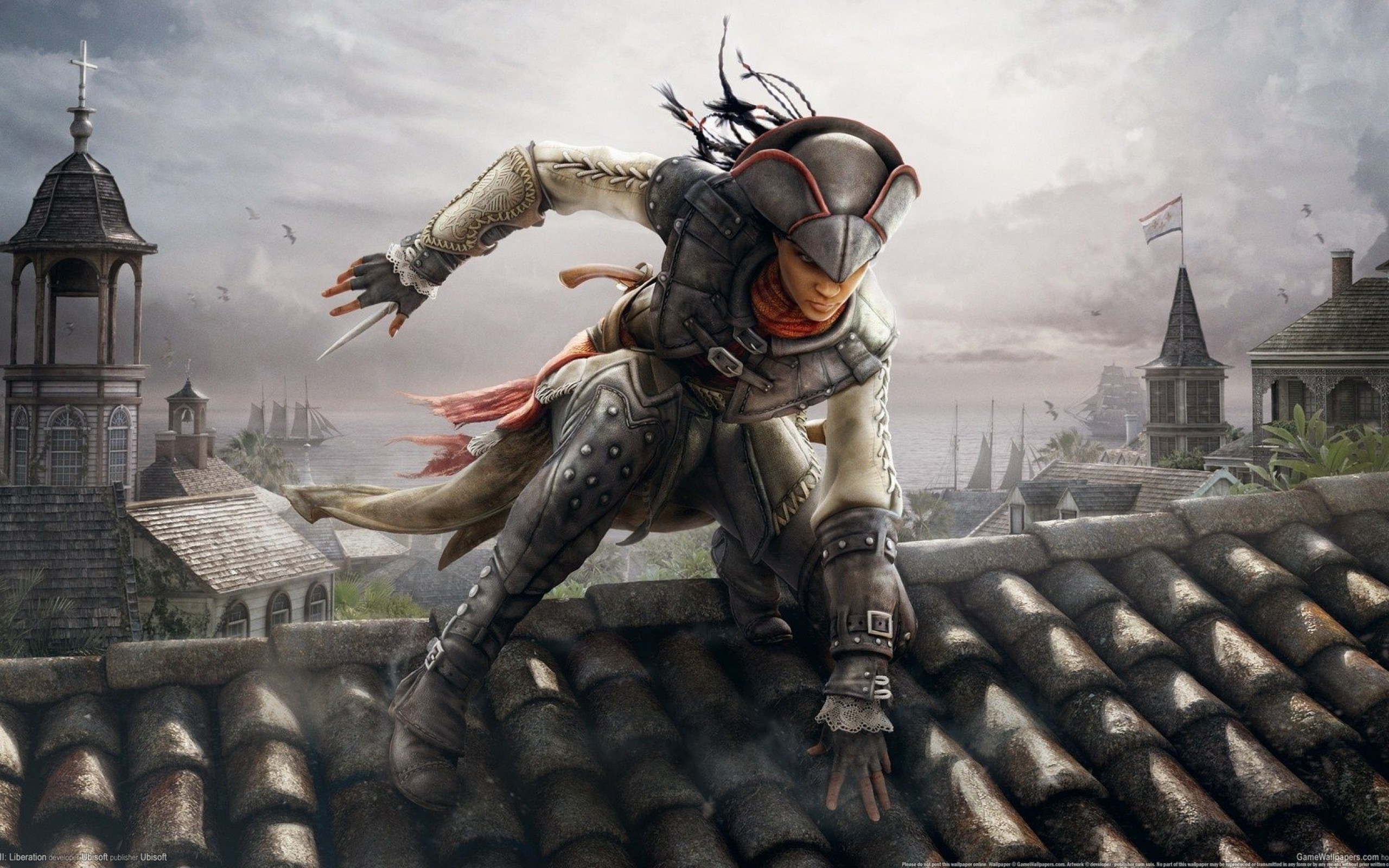
Samuel Roberts: “It was really a lot extra production work”
It’s been a year for kicking Ubisoft, mainly because of the various problems that plagued Assassin’s Creed Unity before and after release. Now everything has calmed down, I think the publisher actually had a strong year between Child of Light, Trials Fusion and Far Cry 4, plus The Crew worked at launch and I’m really liking the look of next year’s London-set Creed sequel.
Some of Ubi’s problems came down to just saying the wrong thing at the wrong time. I think the worst of all blunders was the claim that resources were a factor in not creating a female protagonist for Unity—it’s not that I think Ubisoft should’ve been coaxed into bolting on a female protagonist in four months to appease critics, it was the ludicrous attitude problem suggested by this response that troubled me. For a series that routinely sells millions and is created by multiple studios around the world, this was silly reasoning that demonstrated a lack of self-awareness.
Assassin’s Creed definitely needs to break its run of purely male protagonists for the main games. There is absolutely nothing about the personality traits of any of its heroes to date that could be described by a sane person as ‘male only’—Ubisoft has no shortage of Assassin’s games in the making, and it shouldn’t take years more for Ubisoft to create a series entry with a female protagonist. It’s my hope that the drama surrounding this response will effect a bit of change. I’m certain it wasn’t representative of what everyone or even the majority of people at Ubisoft thinks about the subject, but my word, it was stupid.
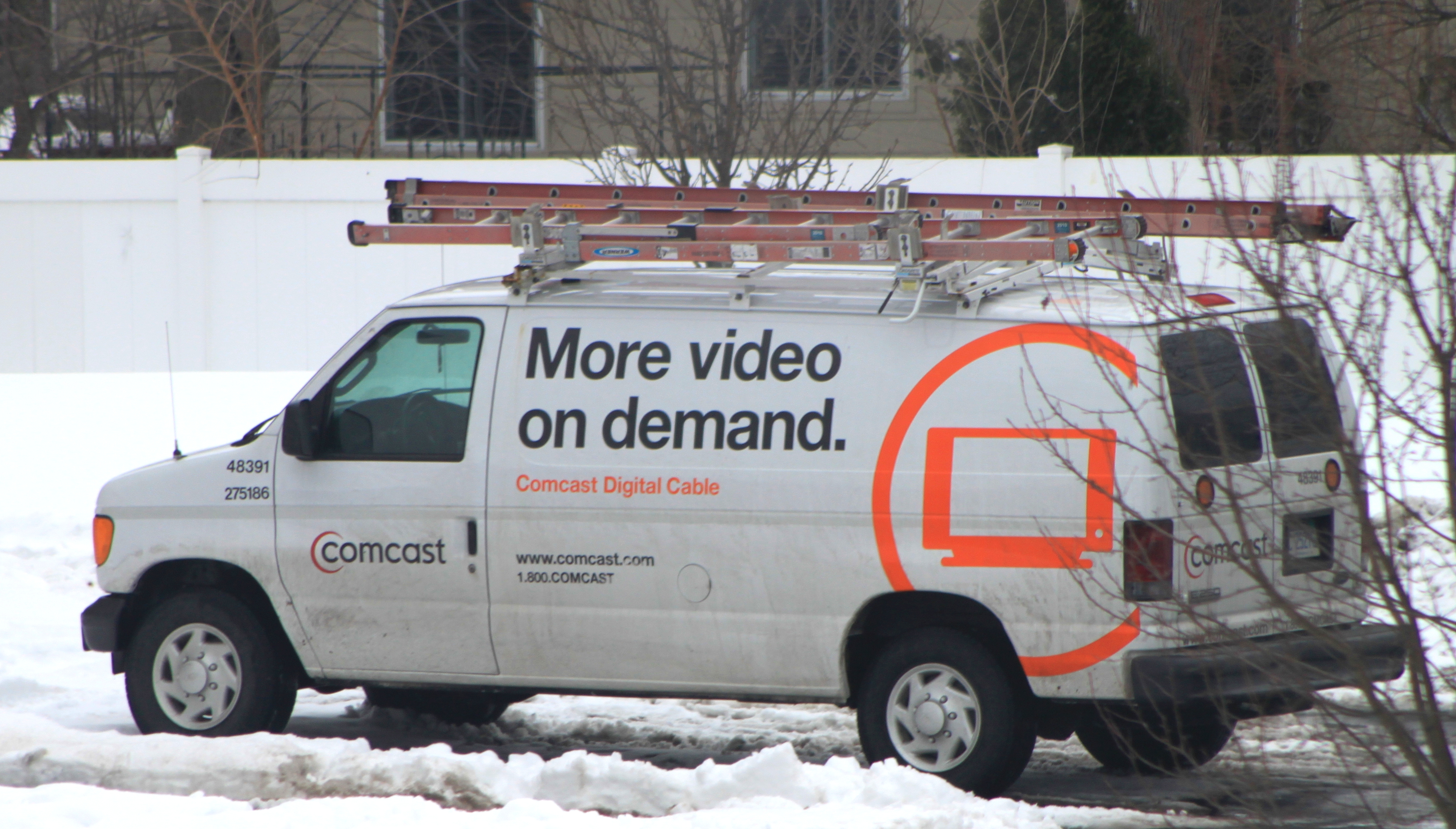
Wesley Fenlon: A bleak year for net neutrality
Way back in January 2014, a US court ruling found that the FCC's 2010 Open Internet Order was unlawful. To truly protect the neutrality of the Internet, the FCC would have to reclassify Internet Service Providers as common carriers. At the time, I wrote about how this could potentially affect PC gamers. And since then, things have gotten a lot worse.
In the spring, the FCC proposed a new set of regulations that essentially allowed big corporations like AT&T, Verizon, and Comcast to install Internet "fastlanes" that prioritized some data over other data. A lot of people were pissed. By summer, Netflix was paying Verizon, Comcast, and AT&T to ensure its traffic reached customers without being throttled. The FCC pushed back a final decision on its FCC plans for months and months to reevaluate after the public's negative response. Then something unexpected happened: in November, President Obama called for the FCC to classify the Internet as a utility, which would prevent carriers from discriminating against certain types of traffic that flowed over their network. That would be a huge win for net neutrality.
President Obama can't actually affect the FCC's decision, though, and his suggestion has turned net neutrality into even more of a political talking point. Republicans like Senator Ted Cruz have opposed net neutrality, claiming it would stifle innovation in an argument that doesn't really make much sense. Worse, dozens of tech companies, including Intel and IBM, have come out against net neutrality. Google, Amazon and Facebook are noted supporters. But here's the most enraging part: AT&T and the other ISPs have threatened to stop investing in the expansion of their fiber networks until the FCC makes a decision. And yet, for years, the federal government has given these companies billions of dollars in grants and tax breaks, much of which was meant to support the expansion of fiber Internet.
As it stands now, the FCC's net neutrality ruling won't come out until early 2015. If the FCC doesn't opt to classify broadband as a utility, 2015 will likely be an even worse year for net neutrality than 2014 has been.
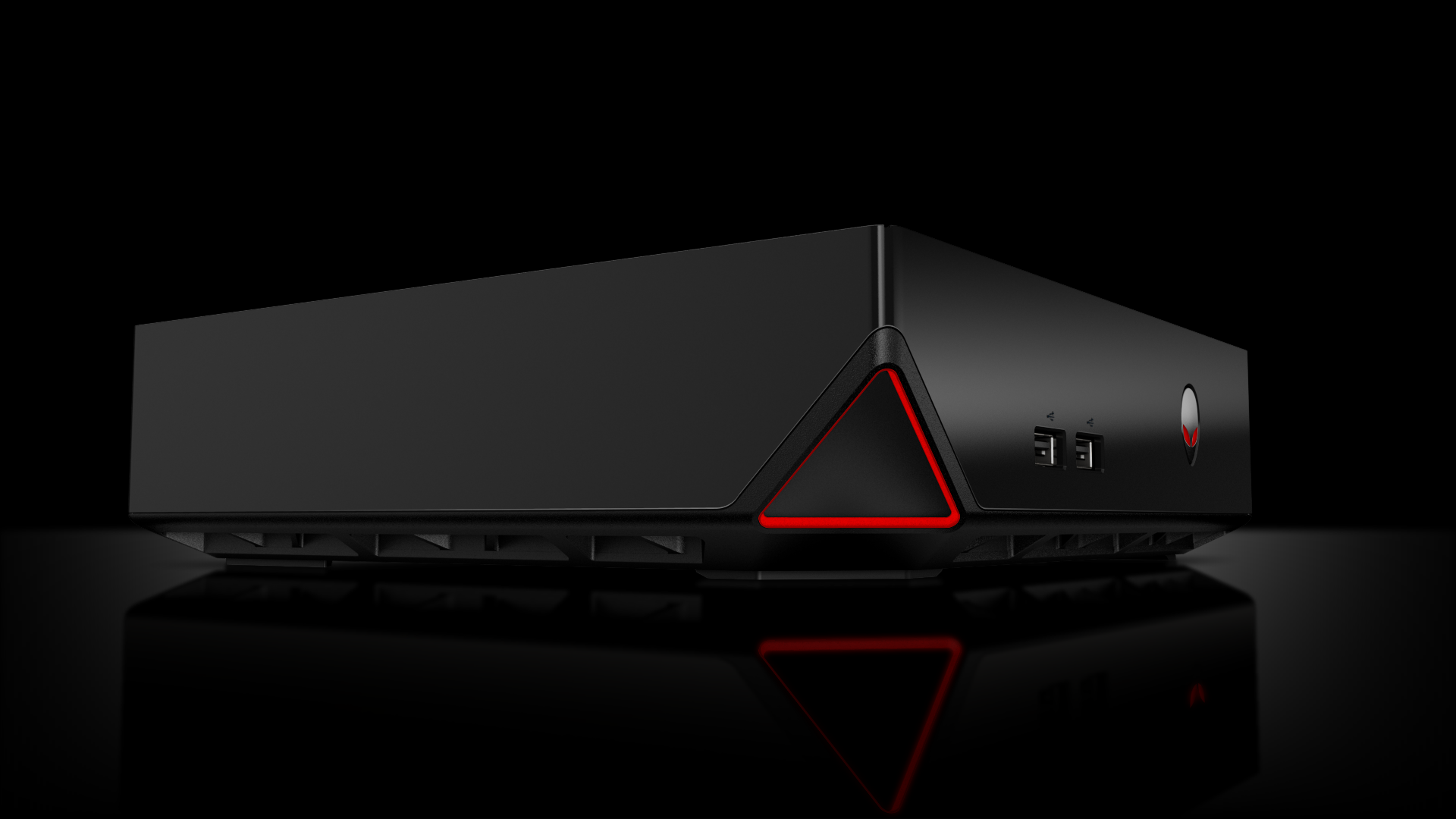
Tom Marks: Nothing but Steam and mirrors
At the end of 2013 Valve announced SteamOS, a Linux based OS that would be installed into all their official Steam Machines and be free separately to boot. At the time, I might’ve made SteamOS and Valve’s loving embrace of a free and open Linux-based system my high of the year, but it’s been 15 months since the announcement, we are about to enter 2015, and I have no idea what Valve is doing with Steam Machines. Their initial announcement told us to expect a final version in 2014, with hardware developers showing off prototypes at CES and Valve even making an early build of the OS available to everyone.
Since then we’ve seen a trickle of features associated with it—like in-home streaming, Steam Music, and Steam Broadcasting—without much news on the machines themselves. We’re now seeing computers like the Alienware Alpha, originally announced as a Steam Machine, rebranded and sold as “consoles” with Windows installed. The Steam Controllers that were supposed to accompany the machines were rumored to come out a couple of months ago but, from the looks of a recent mock-up found in the client beta, they don’t even have a finished design yet.
This whole debacle has been particularly upsetting because 2014 would have been such a great year for Steam Machines to take over. We’ve seen an exciting surge of fantastic couch co-op and party games this year, and there is growing demand for a living room PC. Valve could have been leading the charge, simultaneously encouraging more of those couch games from smaller developers and linux support from the bigger ones. Instead, Valve is quickly falling behind in a market they were trying to break in to. If they can get their act together for 2015, I’ll be more than happy to see what a Steam Machine has to offer, but people have already started figuring out that they don’t need Valve to make a living room PC.

Tim Clark: Destiny not calling
By nature we tend to be an upbeat, positive, always-look-on-the-bright-side sort of team. (Don’t make that face.) And so when it comes time to fill in the ‘Lows’ in our weekly column, you’ll often find writers subverting things that are actually good into seeming bad, just so they talk about something they found fun or interesting. The lowest hanging of the ‘Lows’ fruit is to complain about a game only appearing on console (hat tip to Tom’s low), and for me the most keenly felt absence has been Destiny.
If you haven’t played the game, you’ve probably heard enough about what’s wrong with it—the aggressively capricious loot system, the opaque late game which effectively requires constantly reading the subreddit to stay on top of, and the endless, crushing grind. By sweet Crota’s three eyes, the grind is so real. Pretty much all the criticisms are entirely accurate, and on that basis you might well wonder why we need FPSville on PC anyway?
But here’s the thing. For all its flaws and confusion, some of which Bungie astonishingly actually managed to exacerbate with the recent expansion, the core gunplay is so sweet, so moreish, that I’ve managed to sink north of 260 hours and counting into Destiny. And I know several PCG writers aren’t far behind. A huge reason for that is the game’s raids. Where the standard story missions are exactly the sort of robust sci-fi shootery we expect from Bungie, the raids are revelatory. They blend tricksy environmental puzzles with inventive boss encounter design to create this multi-hour, multi-wipe, *blast*.
With the right team, the rush of achievement and camaraderie, even if you only get goddamn ascendant shards, is like little else in the current FPS space. Yes, there’s probably the same sort of teamwork needed on a hardcore Arma 3 clan, but this is a decidedly more mainstream, and yet also largely unfamiliar experience. I know that some of the team aren’t convinced it’s suited to mouse/keyboard because the whole game has been built with Bungie’s trademark sugary auto-aim in mind, but I can’t help but feel there must be a way of tweaking it for PC. As to whether that actually happens, my suspicion now is that it won’t. So that’s my low. A game that I liked. See what I did?
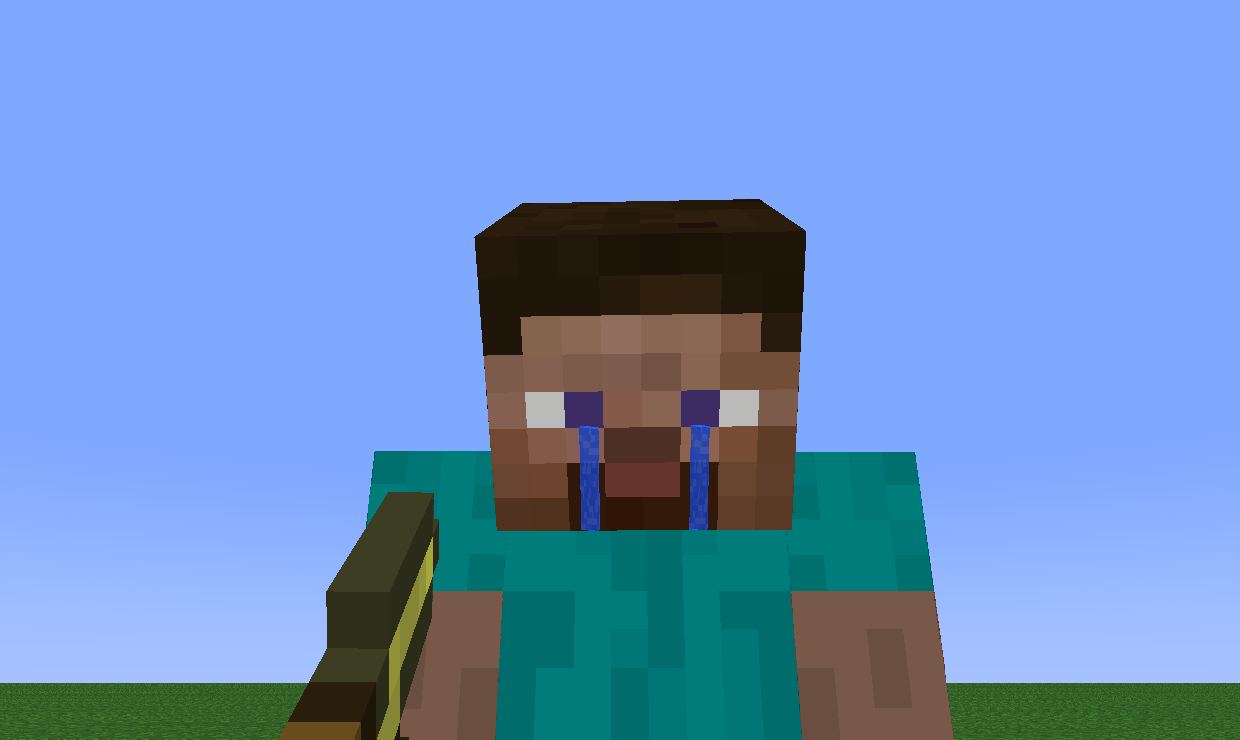
Evan Lahti: Minecrosoft
Minecraft may not be the perpetual source of excitement that it was a few years ago, but make no mistake: few games are more important to PC gaming’s growth as a hobby. We don’t have demographic data on Minecraft (the closest thing might be an extraordinarily unscientific poll of Minecraft forum members in 2011, which found that 64% were under 21), but all of our anecdotal experience suggests that Minecraft is widely played by youngsters. When Microsoft bought Minecraft for $2.5 billion in September, it bought that young audience, and the even younger audience that will start gaming in the next year or two.
PC gaming is unbelievably prosperous. But against the hundreds of millions of dollars of self-promotion Xbox and PlayStation spend to sustain themselves, the PC needs needs gateways like Minecraft to introduce young gamers to its many wonders. And no single game is a more concentrated expression of what the PC does best. As I wrote in September, Minecraft is an opportunity for nine-year-olds to understand the merits of server ownership.
The effects of this deal aren’t evident now, and they may not be for four or five years. Maybe Microsoft will surprise us by supporting Minecraft on PC. More likely, though, is that we’ll see Minecraft become something that’s used to push players to its own, proprietary platform.
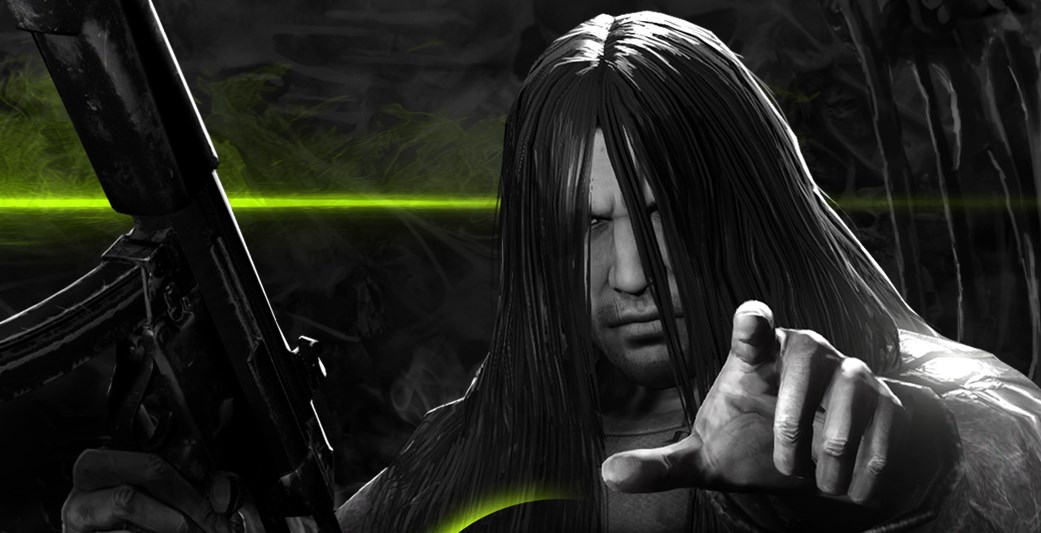
Shaun Prescott: Hatred isn’t going to go away, and it shouldn’t
Hatred is a videogame about killing people. It has an aesthetic reminiscent of a 1990s Marilyn Manson video, and the voiceover guy during its trailer espouses the kind of bloated, wordy angst a teen poet might consider a bit much. These are early impressions and, considering myself to be a fair person, I’d like to reserve final judgement for when this game actually releases. In reality I am not a fair person though, and first impressions suggest this will be a videogame of unrivalled stupidity. A dumb, gross videogame destined to join all of the other unimaginably horrible things in the world.
There are many objectionable things about Hatred, but what I find more objectionable is the dialogue and controversy surrounding it. I think it’s time we stop discussing what is and isn’t acceptable in videogames, and start talking about why things like this exist in the first place. Rather than say, “Hatred is horrible and shouldn’t be made,” we should instead ask “why is it being made?” Why are people making games like this, and why do people want to buy them? If our medium is as mature as we like to think it is, we should stop calling for bannings, and start having nuanced discussions about what these titles actually say about both gaming itself and the world into which they’re being released. Only that will generate any meaningful dialogue.
In a climate where an Australian retailer’s (rather cynical) decision not to stock Grand Theft Auto V is widely dubbed ‘censorship’ by a reactionary audience, it’s clearly no longer useful talking about the limits of taste in videogames. There’s a lot of talk about the medium ‘maturing’, but few people want to allow it to properly explore all of the themes it wants, for better or worse. Don’t mistake this as me calling Hatred mature or worthwhile: the dialogue on its Greenlight page is often frankly frightening, and I’d prefer to live in a world without it, but anyone’s good intentions to wipe the game from the face of the earth just aren’t going to work.
PC Gamer is the global authority on PC games—starting in 1993 with the magazine, and then in 2010 with this website you're currently reading. We have writers across the US, Canada, UK and Australia, who you can read about here.
Keep up to date with the most important stories and the best deals, as picked by the PC Gamer team.
You are now subscribed
Your newsletter sign-up was successful
Want to add more newsletters?

Every Friday
GamesRadar+
Your weekly update on everything you could ever want to know about the games you already love, games we know you're going to love in the near future, and tales from the communities that surround them.

Every Thursday
GTA 6 O'clock
Our special GTA 6 newsletter, with breaking news, insider info, and rumor analysis from the award-winning GTA 6 O'clock experts.

Every Friday
Knowledge
From the creators of Edge: A weekly videogame industry newsletter with analysis from expert writers, guidance from professionals, and insight into what's on the horizon.

Every Thursday
The Setup
Hardware nerds unite, sign up to our free tech newsletter for a weekly digest of the hottest new tech, the latest gadgets on the test bench, and much more.

Every Wednesday
Switch 2 Spotlight
Sign up to our new Switch 2 newsletter, where we bring you the latest talking points on Nintendo's new console each week, bring you up to date on the news, and recommend what games to play.

Every Saturday
The Watchlist
Subscribe for a weekly digest of the movie and TV news that matters, direct to your inbox. From first-look trailers, interviews, reviews and explainers, we've got you covered.

Once a month
SFX
Get sneak previews, exclusive competitions and details of special events each month!


